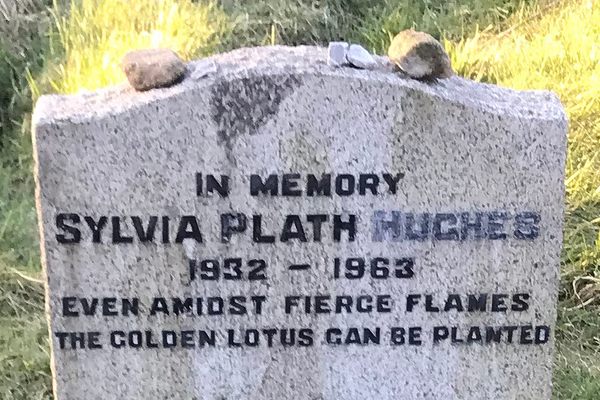Sylvia Plath, remembered for her confessional poetry and her novel The Bell Jar, was not buried in her native America. Rather, her grave is in a small Yorkshire village in which she never lived. The reason for this is that her estranged husband, fellow poet Ted Hughes, buried her near his hometown of Mytholmroyd. The epitaph he chose, “Even amidst fierce flames the golden lotus can be planted,” can be seen as a metaphor for Plath’s depression and possible bipolar disorder.
The controversial relationship between the couple is the reason why Plath’s married surname is often scratched out from her own tombstone. They married in 1956, but Plath left Hughes after discovering an affair in 1962. Letters she wrote at the time included a claim of domestic abuse. Afterwards, she entered a depressive episode that ended tragically with her suicide in 1963.
Despite their separation, Plath was still married at the time of her death, so Hughes inherited her literary estate. Besides putting his surname on her tombstone, he also controversially destroyed or lost much of Plath’s work. For his part, Hughes defended his role in their relationship and said he was devastated by Plath’s death. He published Birthday Letters, a series of poems giving his perspective to the marriage, shortly before his death in 1998.
